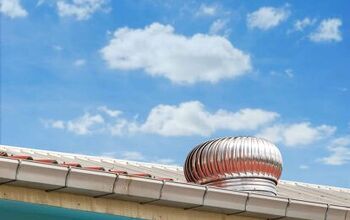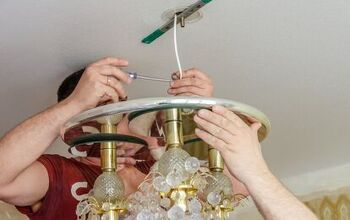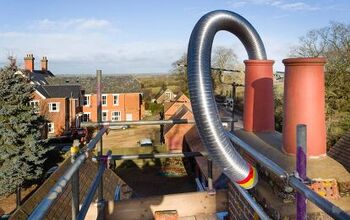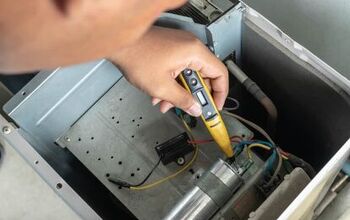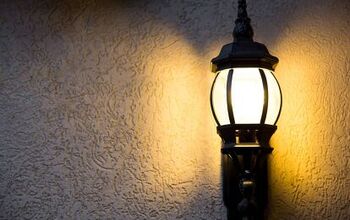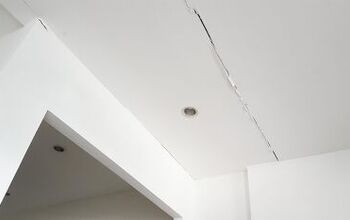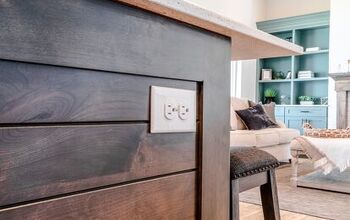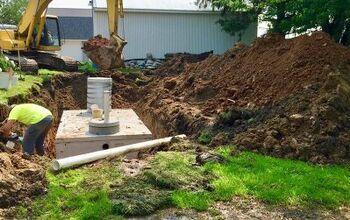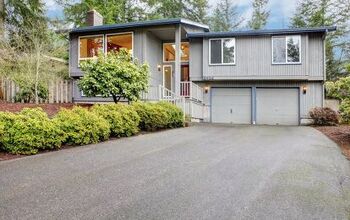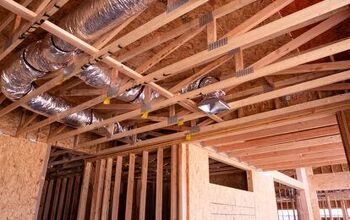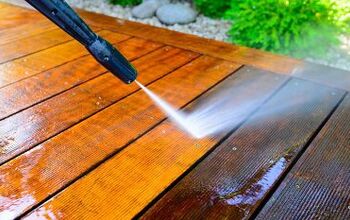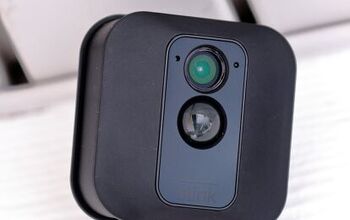Whole-House Dehumidifier Installation Cost | 2022 Rates

Depending on your living situation, humidity control may present a challenge – especially in the summer months. Controlling humidity helps to increase comfortability in the home and prevent moisture buildup, which can lead to problems such as mold growth or pest infestations. Fortunately, installing a whole-house dehumidifier is a great way to lower the humidity levels in your home, regardless of where you live.
In addition to comfort, whole-house dehumidifiers reduce allergies and potential health risks, by preventing the formation of dust mites, bacteria, and mildew. With these units, you can enjoy a reduction of unpleasant odors, as the system delivers fresh, filtered indoor air. Meanwhile, humidity levels are balanced out on cold days, where the humidity may be high but the temperatures are still low. However, all the benefits of a whole-house dehumidifier come at a cost.
The average cost to install a whole-house dehumidifier is $2,525 and that includes materials and labor. Homeowners spend an average of $1,500 on a whole-house dehumidifier and an additional $1,000 in labor. You may have to spend another $325 to install an internal drain pump for your dehumidifier.
We’ll explore exactly what a whole-house dehumidifier is, how they work, the benefits and drawbacks of these units, and all the costs involved in the installation. That way, you can make an informed decision about whether or not a whole-house dehumidifier is the solution for your budget and your home’s humidity concerns.
As you browse the cost of a dehumidifier installation, you may wonder: Air Conditioner vs. Dehumidifier: What Are The Major Differences?
Do You Need Central Humidifier Installation or Replacement?
Get free, zero-commitment quotes from pro contractors near you.

What is a Whole House Dehumidifier?
The purpose of a dehumidifier is to reduce humidity within a home, which diminishes the risk of mold growth and also improves air quality. It functions by pulling moisture out of the air, collecting it, and then draining it away. While many homeowners choose to opt for a portable dehumidifier since it can be moved around as needed, they only work in homes where the humidity is high for a brief period of time or a few times throughout the year.
Homes, where high humidity is a major concern, will benefit from a whole-house dehumidifier – also known as a central unit. These dehumidifiers are connected to your HVAC system, eliminating moisture from the air that circulates through your ducts. Although portable units don’t typically require professional installation, whole-house dehumidifiers are more complex and should be installed by an HVAC professional.
Whether you want to install a dehumidifier to help with allergies or for general comfort in the home, a whole-house dehumidifier is incredibly effective. They can help make the air in your home more enjoyable, which can be particularly helpful if you live in an especially humid climate, such as Texas, Louisiana, or Florida. Whole-house dehumidifiers work really well for what they are meant to accomplish, which is reducing the percentage of humid air in your home.
Overview of How Whole-House Dehumidifiers Work
Whole house, or ducted house, dehumidifiers are a wonderful solution for situations with high humidity. They are commonly seen in two of the following settings:
- Homes that don’t have central air conditioning
- Homes with central air conditioning where dehumidification, but not cooling, is desired during fall and spring months.
The typical installation involves the unit being placed near the furnace or air handler. This could mean that the unit is hung from trusses in your attic or mounted to the floor in a basement or crawlspace. A whole-house dehumidifier attracts air through the return ductwork. The warm, moist air in your home is pulled into the unit to be cooled. This process causes the moisture in the warm air to condense into water droplets.
These water droplets either escape into a collection pan or are drained down the drain. Meanwhile, the dry air is passed over warm coils to transform it back to the desired temperature. Whole-house dehumidifiers can be installed in both new and existing homes. They provide a more comprehensive solution for moisture control when compared to portable versions that only reduce the humidity in one particular room.
Whole-House Dehumidifier Pros and Cons
As with the installation of any major home appliance, you want to be aware of not only the benefits, but also any drawbacks or potential obstacles that may come along with it. It’s typically recommended that the average indoor humidity level for a home be between 40 and 60 percent, although there are a number of factors that cause the percentage to increase or decrease.
Pros of Whole-House Dehumidifiers
There are a number of reasons that homeowners can benefit from having a whole house dehumidifier, with most of the advantages being related to the overall environment in your living space.
- Comfort: One of the most common reasons that homeowners install a whole-house dehumidifier is to increase the comfort in their living spaces. If you notice that your home is stuffy or the indoor air feels heavy, you likely have a high level of humidity. A whole-house dehumidifier can help to make the air in your living areas more enjoyable, by enhancing the overall indoor air quality. If you live in an area that experiences a lot of humidity, a whole-house dehumidifier will make your home significantly more comfortable.
- Allergy Relief: Throughout the year, there are numerous allergens in the air that can prove to be a nightmare for those with allergies. Since a dehumidifier regularly filters your home’s indoor air, you will get cleaner air quality. As such, better air quality means that those with allergies will have reduced reactions from airborne allergens.
- Home Protection: Excess moisture in the air can raise serious concerns for the home, such as mold and mildew growth. Dehumidifiers reduce the risk of this problem by eliminating the moisture particles that allow mold to grow. Additional issues from too much moisture could include warping and rotting of wood flooring or furniture.
- Cooling Efficiency: Your air conditioner works somewhat similar to a dehumidifier, in that it filters out allergens as it processes the air in your home. Since dehumidifiers help clean your home’s air, your air conditioner doesn’t have to work as hard which allows it to cool more efficiently.
Cons of Whole-House Dehumidifiers
Of course, like anything, there are drawbacks to installing a whole-house dehumidifier. However, it’s only one minor disadvantage related to upfront costs.
- Cost: The biggest deterrence for those considering a whole-house dehumidifier installation is the upfront cost. You can spend hundreds, if not thousands, of dollars to purchase a whole-house dehumidifier and then have it installed. While the final price will depend on your individual needs and the size of your home, the costs involved can be pretty steep. You also have to factor in the cost of running a whole-house dehumidifier, which will add to your utility bill.
Average Whole-House Dehumidifier Installation Cost
If you’re concerned about the cost of installing a whole-house dehumidifier, we’re here to shed some light on the subject and help you budget accordingly. Generally speaking, the cost to install a whole-house dehumidifier depends on the unit’s capacity, efficiency, and internal pump, as well as the labor costs. The cost of labor can shift based on the difficulty of the installation, the demand for installers, and where you live.
With that said, the average cost to install a whole-house dehumidifier (including the cost of the unit itself), ranges from $2,250 to $2800, with most homeowners paying about $2,485. However, depending on the aforementioned cost factors, the price could be as low as $1,150 or as high as $3,450. The following table displays a brief overview of the average costs to install a whole-house dehumidifier:
| Average Cost | $2,485 |
| Average Range | $2,250 to $2,800 |
| Low End Cost | $1,150 |
| High End Cost | $3,450 |
Whole-House Dehumidifier Price Factors
The cost to install a whole-house dehumidifier can be broken down into two main categories: the retail price of the unit and the cost of the installation. Without installation, whole-house dehumidifiers range in price from about $1,000 to $2,000. Factors that influence the overall price of the unit include how many pints it condenses in a day, its efficiency, and how it drains.
- Capacity: A whole-house dehumidifier’s capacity – or the amount of moisture it can remove – is measured in pints per 24 hours. Capacity for these units starts at approximately 60 pints for smaller varieties. Whereas, the biggest whole-house dehumidifiers have the ability to remove over 150 pints a day. The cost of a whole-house dehumidifier is directly related to capacity. As a general rule of thumb, the higher the capacity, the more expensive the unit.
- Efficiency: The efficiency of a whole-house dehumidifier is measured in terms of Pints per Kilowatt-hour – or, how much moisture a dehumidifier can eliminate given a set amount of electrical energy. Units with a higher efficiency rating can remove more moisture than less efficient options, both using the same amount of energy. The more efficient the dehumidifier, the higher the price. However, the upfront cost will be made up over time with lower energy bills. Look out for the Energy Star label certification if you want a high-efficiency unit.
- Internal Drainage Pump: If your whole house dehumidifier is going to be installed below grade and there isn’t a sump pump or floor drain, the moisture must be pumped up and out. Units that have internal pumps, or whenever a pump has to be included in the installation, will cost approximately $150 to $500 more.
Whole-House Dehumidifier Cost by Capacity
The following table outlines the average retail cost of whole house humidifiers based on their capacity – measured in pints per 24 hours.
| Capacity | Average Cost Range |
| 60 to 90 pints per 24 hours | $1,035 to $1,600 |
| 95 to 120 pints per 24 hours | $1,250 to $2,200 |
| More than 120 pints per 24 hours | $1,700 to $3,450 |
Dehumidifier Drainage Options
- Gravity: Most dehumidifiers rely on gravity to drain. In this case, you attach a hose to the water outlet and run it into the drain or, in basements, a sump pump. As you are planning out the installation of your whole house dehumidifier, ensure that you position it near a drain option. The hose has to direct the water down and away from the available water outlet, that way you avoid the possibility of water flooding back into the unit.
- Internal Pump: Pumps don’t use gravity and, instead, drive water away from the unit in a different way. They pump the water up and out of the unit, and internal ones can move water up to 16 feet. Whereas, external pumps can move the water up to 20 feet. Some whole-house dehumidifiers will be equipped with internal condensate pumps. These models typically cost around $1,200. However, you can purchase an external pump.
Dehumidifier Cost by Popular Brand
There are a number of companies that manufacture dehumidifiers, whether they’re portable or whole house units. Each brand offers a range of models with different features, capacities, efficiency levels, and more. Although, regardless of the brand, most whole-house dehumidifiers fall within a relatively similar range in terms of price, here are some average dehumidifier costs based on the manufacturer:
| Popular Brand | Average Cost Range |
| Aprilaire | $1,000 to $1,700 |
| SaniDry | $1,200 to $2,500 |
| Santa Fe | $1,200 to $2,500 |
| Honeywell | $1,000 to $2,000 |
| Wave | $1,500 to $1,700 |
| LG | Approx. $300 |
Aprilaire Dehumidifier Costs
Aprilaire is one of the most well-known companies for whole-house dehumidifiers. However, they also have crawl space units available. They have models available from 70 pints to 130 pints, offering incredible reliability. The products also have user-friendly controls and come with five-year warranties. You can expect to pay between $1,000 and $1,700 for a whole-house dehumidifier from Aprilaire.
SaniDry Dehumidifier Costs
SaniDry offers a number of highly efficient models with large capacities. Although they specialize in crawl space and basement applications, you can find some suitable for whole-house purposes. They are approximately the same price as Santa Fe models, although you have to request a quote from your local dealer in order to get an accurate price. You can expect to spend between $1,200 and $2,500 for a whole-house dehumidifier from SaniDry.
Santa Fe Dehumidifier Costs
Santa Fe also specializes in basement and crawl space dehumidifiers, but they have a number of whole house models available for purchase as well. Their units range in capacity from 70 pints per day to 155 pints per day. Overall, Santa Fe is one of the leading manufacturers in the dehumidifier industry and they have numerous high-quality models on the market. You can expect to spend between $1,200 and $2,500 for a whole-house dehumidifier manufactured by Santa Fe.
Honeywell Dehumidifier Costs
Honeywell offers a wide array of whole-house dehumidifiers – available in 65 pint, 90 pint, and 120 pint capacities. Their products also come with five-year warranties. You can expect to spend between $1,000 and $2,000, on average, for a whole-house dehumidifier manufactured by Honeywell.
Wave Dehumidifier Costs
Wave offers its own version of a dehumidifier, called a “ventilation type.” It is advertised as being more efficient and environmentally friendly than its competitors. This dehumidifier also comes with a ten-year warranty, has a large capacity, and boasts a lower operating cost than conventional models. However, it’s important to note, that the effectiveness of this unit is still up for debate. Regardless, you can expect to spend between $1,500 and $1,700 for a whole-house dehumidifier from Wave.
LG Dehumidifier Costs
LG offers two dehumidifier models – a 55 pint per day unit and a 70 pint per day unit. These models are appliance grade, but may not be sufficient for under-home or whole-home use. Make sure you get in touch with a local HVAC professional before you consider using an LG product as a whole-house dehumidifier. Regardless, you can expect to spend around $300 for a dehumidifier manufactured by LG.
Whole-House Dehumidifier Installation Costs and Factors
In order to maximize efficiency and ensure that the unit is situated and connected appropriately, it’s highly recommended to hire an experienced HVAC technician for your whole house dehumidifier installation. Installation costs ultimately come down to labor.
HVAC technicians are the best choice for setting up these systems, as they’ll be able to ensure that you get the right unit for your space, and that it is installed both correctly and in a way that optimizes efficiency. However, most major handyman services will have a skilled dehumidifier installer on staff, which could save you a bit of money. Here’s a brief breakdown of labor costs:
| Service | Labor Costs |
| Handyman | $35 to $50 an hour |
| HVAC Technician | $60 to $115 an hour |
It takes approximately six hours to install a whole-house dehumidifier, which equates to between $210 and $690 for labor costs, depending on whether you hire an HVAC technician or a handyman. However, there are a number of other factors that can increase or decrease the cost to install a whole-house dehumidifier. These include:
- Installation difficulty. If it’s difficult for your professional to access the installation area, the job will take longer, causing the overall labor costs to increase as well.
- Installer demand. Like any other industry, there is a slow season for HVAC installers. If you plan your installation during a slow month, you can expect the estimates to be slightly more competitive.
- Additional work. The overall price of installation will go up if any additional work is required, such as the addition of a designated outlet or return duct.
- Location. Where you live – more specifically, the cost of living where you reside – can influence the price to install you whole house dehumidifier by up to 35%. Cost of living is average in major metropolitan areas of the Midwest, South, and Southwest. Whereas, costs are lower in rural areas and higher in metropolitan areas on both coasts.
Dehumidifier Repair Costs and Troubleshooting
Like any major appliance, there will come a time where your whole house dehumidifier requires some repairs. Knowing how much repairs typically cost can help you budget accordingly before they even occur. Repairs for whole-house dehumidifiers usually cost between $50 to $200, which involves a standard fee, hourly rate, and the cost of the parts and materials. Most HVAC companies charge a standard fee of $50 to $70 and that covers the cost of them simply responding to the service request. Whereas, the labor costs usually range between $50 and $70 an hour.
Fortunately, most issues with a whole-house dehumidifier can be fixed by yourself, with the assistance of your owner’s manual and a brief call to the unit’s manufacturer. Of course, you’ll want to call the manufacturer before you perform any work, as you could risk voiding your warranty. With that said, here are some common issues with whole-house dehumidifiers that you may come across during your unit’s lifetime:
- Blockages: Clogged hoses and drains are a common cause of overflows and leaks in the system.
- Dirty or Icy Coils: Blocked coils will prevent the system from operating or make it run poorly. In this case, you can try cleaning or de-icing the coils based on the information provided in your owner’s manual.
- Odors: Either the coils are dirty or there could be water stuck in the hose if you have unpleasant smells coming from your dehumidifier.
- Noises: Loose parts and screws can result in vibrations inside the system
- Freeze-Up: Since most dehumidifiers are refrigerant style, there is a risk that they will start to freeze under 60 degrees – unless they can handle lower temperatures. If your system freezes up in warmer temperatures it could be because of low refrigerant, a faulty deicer, blocked airflow, or a problem with the compressor.
- Component Failure: Over time, components inside your dehumidifier can wear out or break. If your unit starts to overflow or leak, it may be due to a broken float switch. Whereas, if the system doesn’t start, it may be the case of a faulty humidistat.
- Power Problems: When the unit won’t turn on, faulty power cords and tripped breakers are often the cause.
DIY or Hire a Professional?
When it comes to installing a whole-house dehumidifier, it is always recommended to hire a professional. While you may be able to handle the installation of a portable dehumidifier on your own, this is not the case for whole-house units. Improper installation can lead to mechanical failure, water damage from leaks, and possibly more serious issues.
The installation also requires essential planning steps, including selecting the appropriately sized unit and where to integrate the ducts with your current ductwork in order to optimize performance and efficiency. Installing a whole-house dehumidifier is a challenging project, and is best suited for a professional.
Is a Whole House Dehumidifier Worth the Cost?
If the area you live in doesn’t have major issues with high humidity, then a whole-house dehumidifier may not be worth the costs involved. In humid, damp climates, the answer ultimately comes down to whether your home feels comfortable to you during the spring, summer, and fall months.
If not, then get in touch with a local HVAC technician to learn more about what a whole-house dehumidifier can do for your indoor air quality and the comfortability in your home. They are also going to be the greatest resource for receiving the most accurate estimate for what it costs to install a whole-house dehumidifier. The bottom line here is comfort. If your home still feels stuffy and humid even when you have your air conditioning set to 72 degrees or lower, the air isn’t being properly dehumidified. In this case, there are usually a couple of solutions:
- Replace your current air conditioning system or heat pump with one that is the appropriate size. However, in especially humid climates, this may not be enough.
- Install a whole-house dehumidifier to work alongside your central air conditioning.
- If your air conditioning is nearing the end of its life, you can replace the entire system with one that has a dehumidifier built-in.
When in doubt, reach out to a professional to determine the appropriate solution for your home.
Do You Need Central Humidifier Installation or Replacement?
Get free, zero-commitment quotes from pro contractors near you.

Related Questions
Do I need a permit to install a whole-house dehumidifier?
So long as power is available at the installation site, you do not have to have a permit. A permit is only necessary when an electrical circuit and wiring are also being installed in order to power the dehumidifier. In this case, you can expect to pay around $125 for a permit.
How much electricity does a whole-house dehumidifier use?
The amount of electricity that your dehumidifier uses will depend on your particular model. However, the table below outlines the average watts per hour based on capacity:
| 30 pints per day | 300 to 400 watts |
| 50 pints per day | 400 to 500 watts |
| 70 pints per day | 600 to 700 watts |
Depending on the size and capacity of your particular unit, you can expect to pay between $15 and $25 a month to run a whole-house dehumidifier. This equates to a yearly average range from $60 to $300.
What’s the difference between air conditioning and a dehumidifier?Although dehumidifiers and air conditioners are similar, they perform two distinct functions. The purpose of a dehumidifier is to reduce the moisture in the air, while air conditioners are designed to cool the home. Dehumidifiers work by pulling the air into the system, re-heating it, and then sending it back into the home. They also have the ability to handle excessive levels of moisture, which air conditioning systems cannot.
Related Guides

Jessica considers herself a home improvement and design enthusiast. She grew up surrounded by constant home improvement projects and owes most of what she knows to helping her dad renovate her childhood home. Being a Los Angeles resident, Jessica spends a lot of her time looking for her next DIY project and sharing her love for home design.
More by Jessica Stone




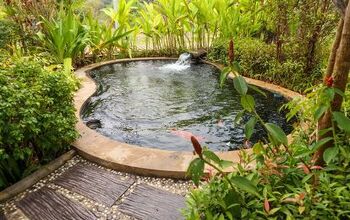





![How Much Does A Whole House Generator Cost? [2022 Rates]](https://cdn-fastly.upgradedhome.com/media/2023/07/31/9077440/how-much-does-a-whole-house-generator-cost-2022-rates.jpg?size=350x220)
